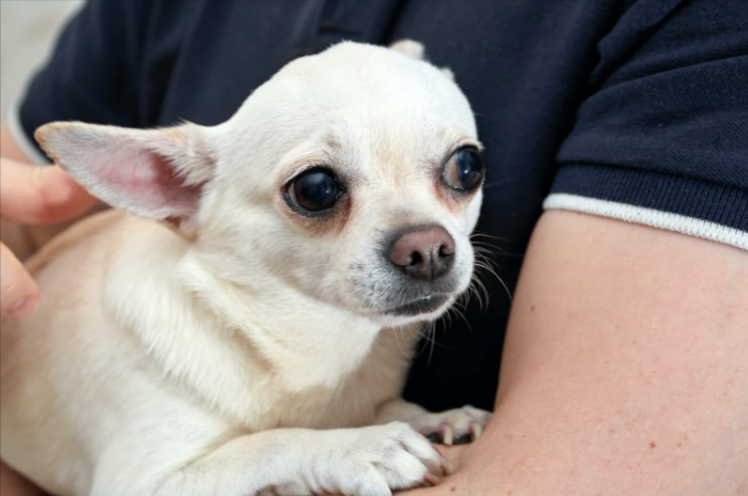Chihuahuas are tiny dogs with big personalities. They’re one of the most beloved toy breeds, known for their expressive eyes.
But if you’re a Chihuahua parent, you’ve probably noticed your little one shaking or shivering now and then — and wondered if it’s something to worry about.
The truth is, Chihuahuas are more prone to shaking than many other breeds. Their small body size and low fat levels mean they don’t retain heat well, which makes them especially sensitive to the cold.
But it’s not just about the temperature; sometimes they shake due to excitement, fear, anxiety, or stress.
In this blog, we’ll explore the most common reasons your Chihuahua might be shaking, when it’s normal, and when to call the vet.
Reasons Why Chihuahuas Shake
Chihuahuas are known for their tiny size and big personalities, but they also tend to shake quite a bit. This can be due to their naturally high metabolisms or their sensitivity to cold weather.

Here are some common reasons why your Chihuahua might be shaking.
1. Cold Weather
Chihuahuas have thin coats and small bodies, which makes them sensitive to cold temperatures. Even a slight chill can cause them to shiver. Providing warm bedding and a dog sweater can help keep them cozy and comfortable.
2. High Metabolism
Chihuahuas have a naturally high metabolism, which means they burn energy quickly, even while resting. This energy usage can sometimes cause their bodies to tremble or shake, especially if they haven’t eaten in a while. It’s completely normal and not usually a cause for concern.
3. Old Age
As Chihuahuas get older, they may experience muscle weakness, joint pain, or neurological issues that cause trembling. Senior dogs may also develop conditions like arthritis or canine cognitive dysfunction that contribute to shaking.
4. Medical Conditions
Shaking can be a symptom of underlying medical issues such as hypoglycemia, kidney disease, or neurological disorders. Regular checkups and early diagnosis are key to managing such conditions effectively.
5. Injury
While there are many common causes for a Chihuahua shaking, it might also indicate a problem. This is particularly valid if it begins or changes abruptly. Shaking could be an indication of damage, broken bones, or another injury to your Chihuahua. Keep an eye out for any indications of pain, such as crying, limping, or limited movement.
6. Poisoning
Accidental poisoning from chocolate, xylitol, or toxic plants can cause severe shaking, vomiting, and even seizures in dogs. This is a medical emergency and requires immediate attention.
Is It Normal For Chihuahuas To Shake?
It’s quite normal for Chihuahuas to shake, and it often isn’t a cause for concern. Due to their small size and high metabolism, they are more prone to trembling, especially when they’re excited, anxious, or cold.
However, persistent or unusual shaking could signal an underlying health issue such as hypoglycemia, pain, or illness. If your Chihuahua’s shaking is frequent or accompanied by other symptoms like vomiting or lethargy, it’s best to consult a veterinarian.
What To Do If Your Chihuahua Shakes?
If your Chihuahua is shaking, first check for obvious reasons like cold weather or excitement. Offer a warm blanket or sweater if it’s chilly.
If shaking continues or is paired with symptoms like vomiting, lethargy, or limping, consult a vet immediately—it could be a sign of pain, illness, or poisoning.
Avoid giving any medications without professional advice. Keeping your dog warm, stress-free, and well-fed can help reduce occasional trembling. Always observe their behavior closely.
Read Next:
Conclusion: Chihuahua Shakes Due to Cold, High Metabolism, or Poisoning
Chihuahua shaking can happen for a variety of reasons—some completely normal, and others that may need medical attention.
If your pup is simply cold, make sure they have a warm, cozy spot to rest, and consider dressing them in a little sweater or coat, especially during chilly weather.
However, if the shaking is persistent or seems unusual, it’s always best to check in with your vet.
By staying observant and seeking professional advice when needed, you can make sure your Chihuahua stays happy, comfortable, and in good health.
